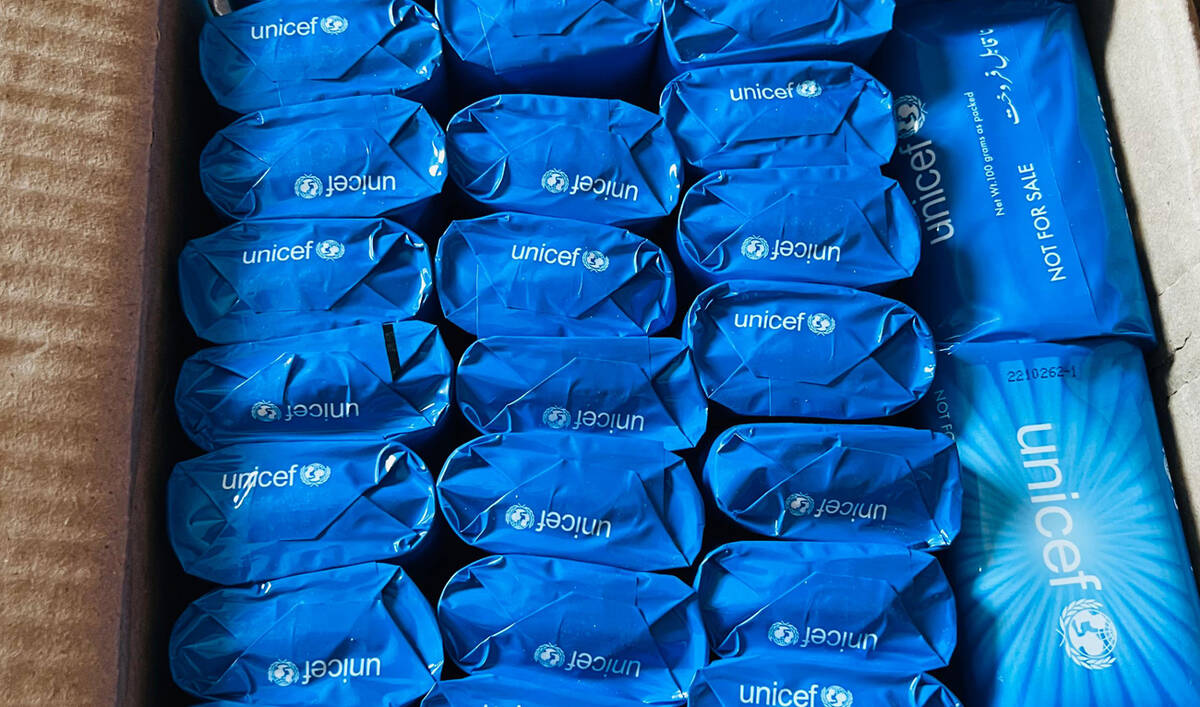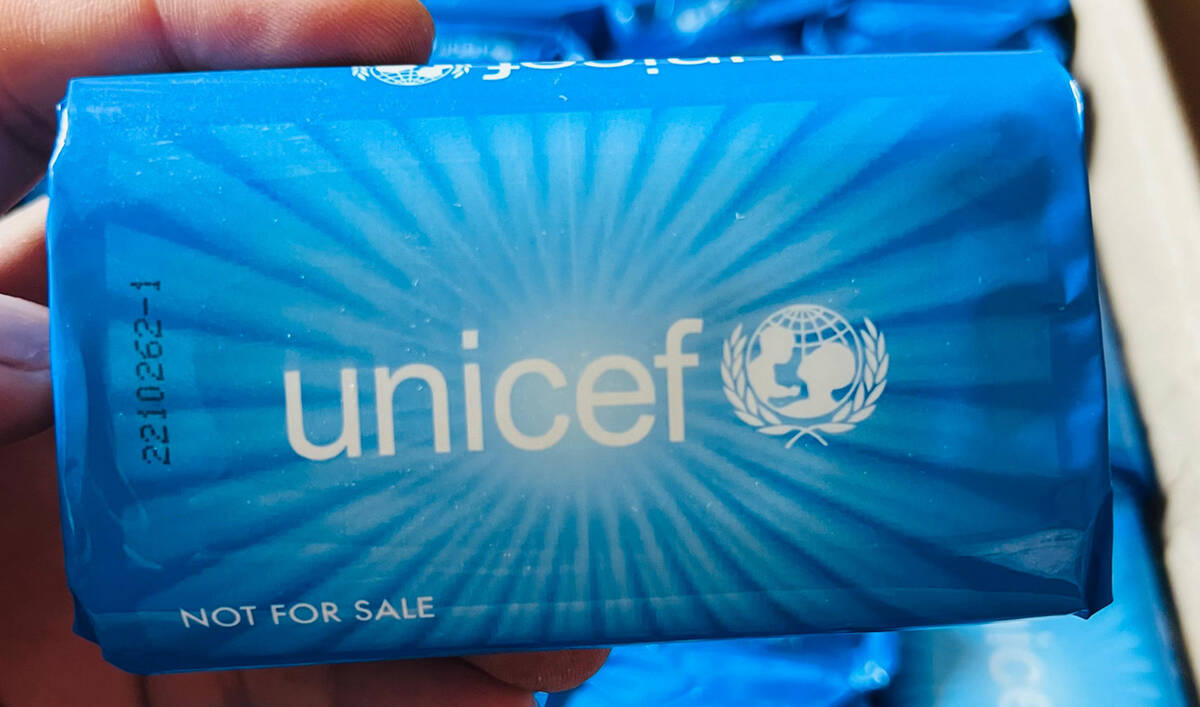PESHAWAR: Authorities in Pakistan’s northwestern Khyber Pakhtunkhwa (KP) province are probing the alleged sale of soap bars, which were provided by the United Nations Children’s Fund (UNICEF) for the country’s campaign against polio, at a market in Peshawar, officials said on Friday.
The comments came after the seizure of over 200 soap bars at the Faqeerabad market in the provincial capital, which bore the “not-for-sale” marking, according to Additional Assistant Commissioner Azimullah Mehsud.
The local administration acted on a tip-off about UNICEF-tagged soap bars being “diverted” to the open market. A preliminary investigation suggested the consignment originated in the southern Sindh province.
Authorities arrested a shopkeeper on June 25, who was selling these soap bars on Facebook and in the local market in the northwestern Pakistani city.
“According to initial investigations, he [the suspect] said these [soaps] were being supplied to him from Sindh,” Mehsud told Arab News. “The person we have arrested posted them on Facebook and said he is an Afghan national.”

This handout photo, released by the District Administration of Peshawar, shows recovered UNICEF-tagged soap bars after a raid at the Faqeerabad market in Peshawar, Pakistan on June 25, 2025. (Photo courtesy: Handout/District Administration)
He said the UNICEF-tagged soaps were recovered by the city administration and handed over to the anti-corruption department of the city circle for further investigation.
“The suspect allegedly sold these soaps to buyers who would then change the packaging and supply them to various locations, including Jalalabad, an eastern province of Afghanistan, and inside Pakistan such as Dera Ismail Khan district,” he continued.
Asked about the tip-off, he said: “We were told that they have 20,000 cartons.”
Mehsud said the authorities recovered three cartons during the raid, with a total of 216 soap bars.
He informed the suspect claimed to have additional stock.

This handout photo, released by the District Administration of Peshawar, shows recovered UNICEF-tagged soap bars after a raid at the Faqeerabad market in Peshawar, Pakistan on June 25, 2025. (Photo courtesy: Handout/District Administration)
“Authorities suspect a large network may be involved [in the activity], but investigations by the anti-corruption department is expected to shed more light on the matter,” he added.
Arab News reached out to UNICEF’s communication specialist, Zia-ur-Rehman, for comment but did not receive a response.
Meanwhile, the anti-corruption department plans to send an open letter to UNICEF and the Sindh provincial administration to further investigate the matter.
One of its officials, Humayun Khan, confirmed to Arab News that his department had launched an investigation into the case.
Polio is a paralyzing disease with no cure, making prevention through vaccination critical. Multiple doses of the oral polio vaccine, along with completion of the routine immunization schedule for all children, are essential to build strong immunity against the virus.
Pakistan, one of the last two countries where polio remains endemic, made significant progress in curbing the virus, with annual cases dropping from around 20,000 in the early 1990s to just eight in 2018. The country reported six cases in 2023 and only one in 2021.
However, Pakistan witnessed an intense resurgence of the poliovirus in 2024, with 74 cases reported. According to Pakistan’s polio program, 13 cases of the virus have so far been confirmed this year.
















